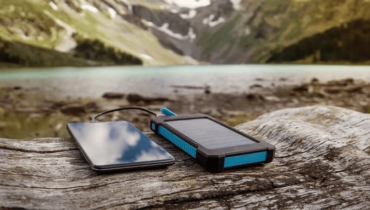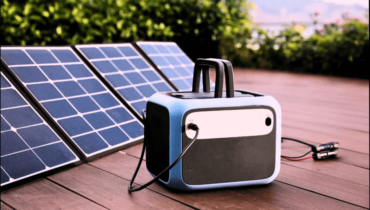Table of Contents
In the pursuit of harnessing clean and sustainable energy, solar panels have emerged as a shining beacon of hope. These photovoltaic wonders convert sunlight into electricity, providing an eco-friendly alternative to traditional power sources. However, the efficiency of solar panels can be influenced by various factors, and one of the critical elements in this equation is temperature.
How long do solar panels last? In this article, we explore the impact of temperature on solar panel efficiency and how you can optimize their performance. Yes, temperature does affect solar panel efficiency. Solar panels operate optimally within a certain temperature range, typically between 25°C to 35°C (77°F to 95°F).
Understanding Solar Panel Efficiency
Before delving into the effects of temperature, let’s first grasp the concept of solar panel efficiency. Solar panel efficiency refers to the ability of a photovoltaic system to convert sunlight into electricity. Typically measured as a percentage, higher efficiency means more energy production from the same amount of sunlight.
How long do solar panels last on a house? Solar panels are at the forefront of the renewable energy revolution, allowing us to capture the sun’s energy and convert it into electricity. When considering solar panels for your energy needs, understanding their efficiency is crucial. In this article, we’ll delve into the concept of solar panel efficiency and why it matters for your clean energy aspirations
The Optimal Operating Temperature
Solar panels perform optimally in a specific temperature range, often referred to as the “Optimal Operating Temperature.” For most standard crystalline silicon solar panels, this range falls between 25°C to 35°C (77°F to 95°F). When the temperature is within this range, solar panels can achieve their highest efficiency levels.
Which is better inverter or solar panels? Solar panels are renowned for their ability to convert sunlight into electricity, providing a sustainable and eco-friendly energy source. To maximize the efficiency and performance of your solar panel system, it’s crucial to understand the concept of the optimal operating temperature. In this section, we’ll explore what the optimal operating temperature is and why it’s essential for the success of your solar energy setup.
Top 3 Temperature Affect Solar Panel Efficiency
What should be the tilt angle for solar panels? Solar panel efficiency can vary depending on factors like the specific technology used, the quality of materials, and the design of the panels. While I don’t have access to real-time data on specific product models, I can provide some general insights into the efficiency of flexible solar panels in the market.
- Renogy 100 Watt Flexible Solar Panel: Renogy is a reputable manufacturer, and their 100 Watt flexible solar panel is known for decent efficiency. On average, flexible solar panels like this one typically have an efficiency ranging from 15% to 20%. This means they can convert 15% to 20% of the sunlight they receive into electricity.
- Topsolar 100W Flexible Solar Panel: The efficiency of Topsolar’s 100-watt flexible solar panel is likely to be in a similar range as the Renogy panel, around 15% to 20%. However, efficiency can vary slightly based on the specific model and technology used.
- Renogy 175 Watt Flexible Solar Panel: Renogy’s 175 Watt flexible solar panel, being a higher capacity model, may have a similar efficiency range as the 100 Watt panel, typically around 15% to 20%. Keep in mind that the efficiency of flexible solar panels tends to be slightly lower compared to rigid, traditional solar panels.
Note: Efficiency is just one factor to consider when choosing a solar panel. Other factors such as durability, warranty, and suitability for your specific application should also play a role in your decision-making process. Additionally, technological advancements are continually improving the efficiency of solar panels, so it’s a good idea to check the manufacturer’s specifications for the most up-to-date information on the efficiency of a particular model.
The Impact of High Temperatures
How long do solar panels last on average? Solar panels are an excellent source of renewable energy, but their efficiency can be influenced by various environmental factors. High temperatures, in particular, can have a significant impact on the performance of solar panels. In this section, we’ll explore the effects of high temperatures on solar panel efficiency and what you can do to mitigate them.
Decreased Efficiency in High Temperatures
As the temperature rises above the optimal operating range, solar panel efficiency tends to decrease. This phenomenon occurs because excessive heat can disrupt the electronic properties of the semiconductor material within the solar cells. When electrons in the semiconductor gain more thermal energy, they become more mobile, which can lead to a reduction in the voltage output of the panel.
Thermal Losses
Moreover, high temperatures can cause thermal losses, leading to a drop in overall energy production. Solar panels are designed to convert sunlight into electricity, not to absorb heat. When the panels get too hot, a substantial amount of the incoming solar energy is lost as heat instead of being converted into electricity.
The Impact of Low Temperatures
Which is better series or parallel solar panels? While high temperatures can negatively affect solar panel efficiency, low temperatures can have a different impact. In this section, we’ll explore how colder temperatures can influence the performance of solar panels and what you can do to optimize their efficiency in chilly conditions.
Increased Efficiency in Low Temperatures
Conversely, solar panels can become more efficient in colder temperatures. When the temperature drops, the semiconductor material becomes more stable, and electrons are less prone to excessive movement. This increased stability can result in higher voltage output and improved overall efficiency.
Managing Temperature Effects on Solar Panels
What is the optimal direction for solar panels? Solar panels are a valuable source of clean and renewable energy, but their efficiency can be influenced by temperature fluctuations. To ensure that your solar panel system operates optimally, it’s crucial to manage the effects of temperature. In this section, we’ll explore various strategies for managing temperature effects on solar panels.
Cooling Techniques
To counter the negative effects of high temperatures, various cooling techniques can be employed. Passive cooling methods include shade structures and elevated panel mounting, which allow for better airflow around the panels. Active cooling methods involve the use of fans or water circulation systems to dissipate excess heat.
Cold Weather Considerations
In colder climates, it’s essential to ensure that solar panels are not covered with snow or ice, as this can hinder their efficiency. Can you live off-grid with solar panels? Absolutely! By harnessing the power of the sun, solar panels provide a sustainable and independent energy source, allowing individuals to live off-grid and enjoy a self-sufficient lifestyle.
FAQs
Q1: What are solar panels, and how do they work?
Solar panels, also known as photovoltaic panels, are devices that capture sunlight and convert it into electricity. They contain solar cells made of semiconductor materials like silicon, which generate electrical current when exposed to sunlight through the photovoltaic effect.
Q2: Are solar panels environmentally friendly?
Yes, solar panels are environmentally friendly. They produce clean, renewable energy without emitting greenhouse gases or pollutants, reducing our reliance on fossil fuels and mitigating climate change.
Q3: Do solar panels work on cloudy days or during the night?
Solar panels are less efficient on cloudy days and do not generate electricity at night. However, they can still produce some power in diffused light and may be combined with energy storage systems or connected to the grid for nighttime use.
Q4: What factors affect the efficiency of solar panels?
The efficiency of solar panels can be influenced by factors such as temperature, shading, panel orientation, dust and dirt accumulation, and the quality of the solar cells used.
Q5: How long do solar panels last?
Solar panels typically have a lifespan of 25 to 30 years or more. They often come with warranties that guarantee a certain level of performance for a specified period.
Q6: What is the return on investment (ROI) for solar panels?
The ROI for solar panels varies based on factors like installation costs, local electricity rates, available incentives, and system efficiency. In many cases, solar panel installations pay for themselves within 5 to 10 years and can lead to long-term savings.
Conclusion
In conclusion, How long do solar panels last in Florida? Understanding these temperature-related effects is crucial for optimizing the output of your solar panel system. Temperature does indeed affect solar panel efficiency, with high temperatures leading to decreased efficiency and thermal losses, while low temperatures can enhance panel performance.
To make the most of your solar investment, it’s essential to consider local climate conditions, implement cooling or heating strategies when necessary, and choose high-quality solar panels designed to withstand temperature variations. By doing so, you can ensure that your solar panels continue to generate clean and sustainable energy for years to come.

